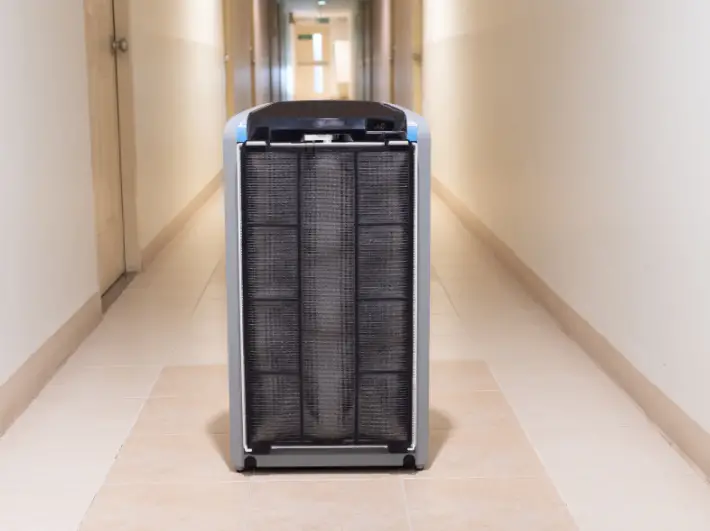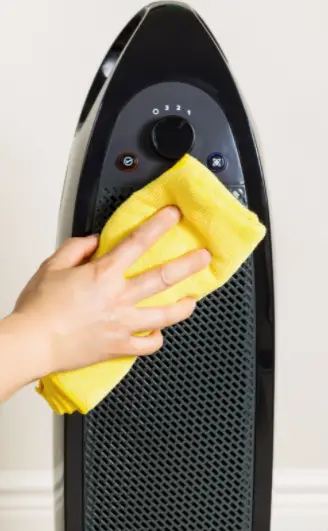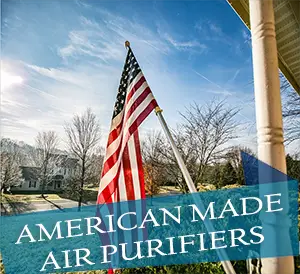
When it comes to home maintenance, what do air purifiers help with? If you’re curious and want to ask “what is an air purifier good for?” then the answer is simple: it cleans the air from pollutants such as dust, dirt, pollen, smoke particles, pet dander, and more.
While you cannot see most of these particles with the naked eye all the time, they go straight into the filters of an air purifier thanks to their unique filter design. Most air purifiers nowadays have a HEPA filter that will capture even smaller particles so they won’t get inside your nose and cause you to sneeze uncontrollably.
Whether you’re an asthmatic, allergy sufferer, or just a normal person who wants clean air, an air purifier is a worthy investment for the home. We care about your health and that’s why we wrote this article to tell you about the different benefits of an air purifier.
Are air purifiers really worth it?
Yes, air purifiers are worth buying because of their many benefits to us. If you are wondering about these benefits, here are some of an air purifier’s best features to get you convinced:
1. HEPA filters for dust and particles
These special filters will remove dust and unwanted particles that are in the air, which will help you breathe easier. This is especially helpful if you have asthma and/or allergic rhinitis as breathing in small particles will result in worsened symptoms.
HEPA filters will clean up to 99.9% of particles that are sized 0.3 microns and above. This means it will capture any of the following upon contact:
- Dust
- Pet dander
- Pollen
- Smoke particles
- Dust mites
With that said, you might be curious: do HEPA filters remove smoke? The answer is yes – when it comes to the smoke particles, that is. However, for you to thoroughly remove smoke from your home, read the next number below.
2. Activated carbon filters for the smell
As we mentioned above, smoke is removable with HEPA filters but you’ll need an activated carbon filter to remove the smell and the VOCs (volatile organic compounds) that are present in smoke – specifically tobacco smoke.
Look for an air purifier with activated carbon filters and you’ll clean up not only dust and particles in the air but also vapors and strong smells that are unwanted in your home.
3. Timer option and eco mode
Do air purifiers use a lot of electricity? The general answer is no – air purifiers only consume around 50 watts or less (typically similar to a laptop computer).
It’s also energy-saving thanks to the timer option that most units have. You can set the timer to have it automatically turn itself off at night so there’s no more need to wake up at 1 AM just to do that.
Likewise, there’s also an eco mode for most air purifiers today, which will lower the fan speed – best used at night when you sleep. In this way, the air purifier will still be operational albeit on a slower fan speed, consuming less electricity.
4. Various fan speeds
During allergy season when the pollen count is very high, it helps to have a turbo option in your choice of fan speeds. This will help clear out the pollutants in the air quicker than your usual air purifier fan speed – great for allergy sufferers and asthmatics.
In many cases, air purifiers nowadays may also have the auto mode – a special mode that detects the AQI (air quality index) at home and adjusts the fan speed accordingly.

How long does it take for a HEPA filter to clean a room?
An average HEPA filter will take about half an hour to about two hours depending on various factors. Not all air purifiers will clean at the same speed, and here are the factors for you to consider:
1. Fan speed
A much faster fan speed will move air better, resulting in quicker air cleaning. If the localities report that the AQI (air quality index) is indeed high, especially when it’s allergy season, we recommend you turn your fan speed to the highest or use a turbo mode, if present.
2. Room size
The room size will have an impact on how fast your air purifier will clean. Of course, bigger rooms are always a challenge when it comes to cleaning, which is why you will need a properly-rated air purifier for the job.
In general, you should pick an air purifier that’s ideal for your room size so it’s best to measure the room in question first (in square feet/meters).
3. Air quality
The air quality of a given space or area is measured in AQI or the air quality index. Most air purifiers have a sensor that detects the air quality and if it’s very bad, it will take some time to clean it up. You may also want to consult your local announcements for the AQI in your area.
4. CADR
CADR means clean air delivery rate and is a measurement of how fast and efficient an air purifier can clean up a room in general or depending on the particle in question. A good air purifier should have around 300 or more CADR but we’d like to stick around 400 CADR – especially for smoke and especially for medium-sized rooms and above.

Do air purifiers work for viruses?
Yes, air purifiers do work for viruses, which is why you will spot them in hospitals and clinics. Air purifiers help our “frontliners” to do their job properly while minimizing the spread of dangerous viruses that could impact the health of not just their patients, but also the visitors or their companions.
If you want to know more, check out our list of the best air purifier for viruses to help you decide. These air purifiers have special filters and features that will combat viruses and germs to keep you safe.
Conclusion
So, with the given benefits of air purifiers mentioned above, are they worth buying? For us, the answer will always be a yes. Air purifiers will help improve our life quality by making our indoor air clean and breathable so we don’t get sick or otherwise irritated by allergy symptoms. To that end, we wish you good health and stay safe always.


